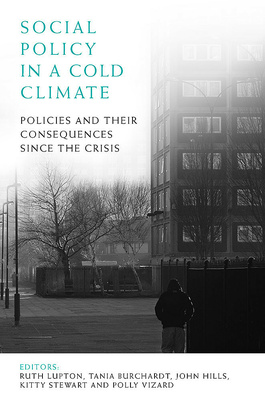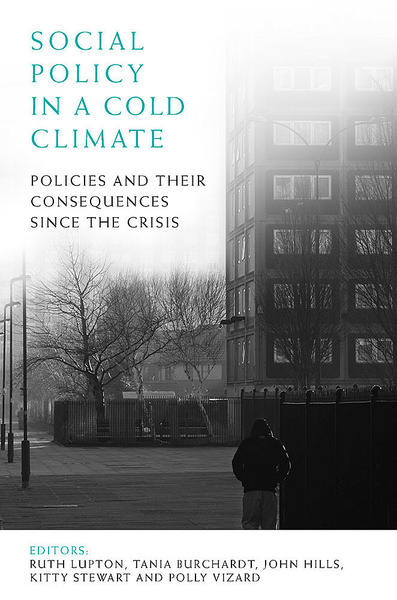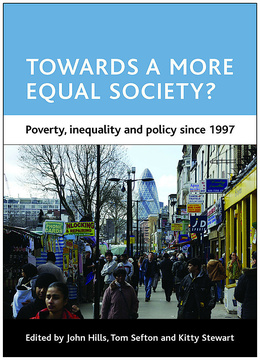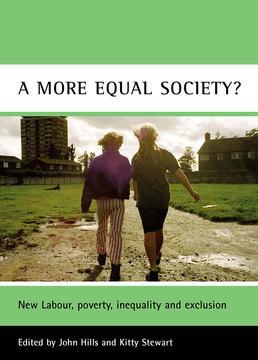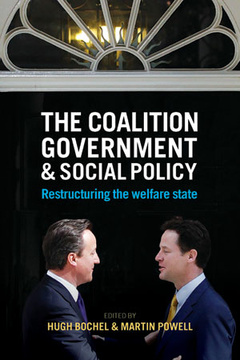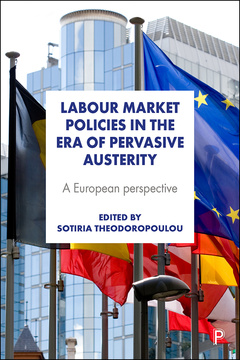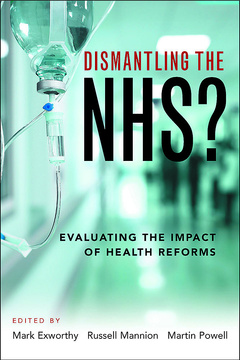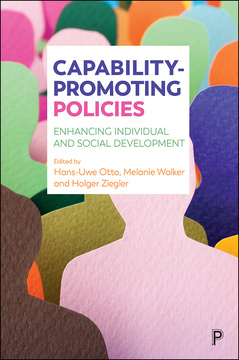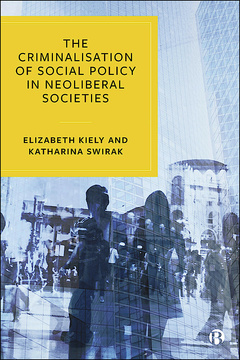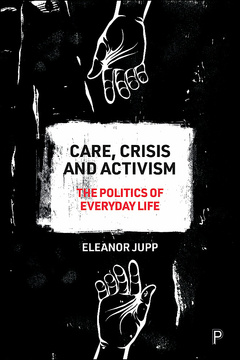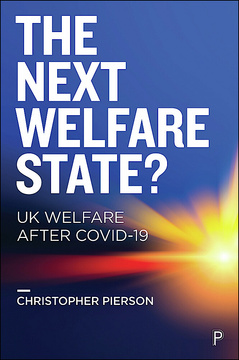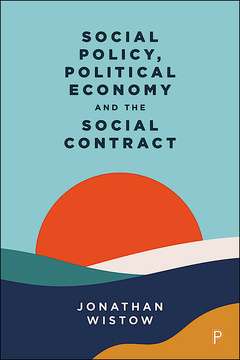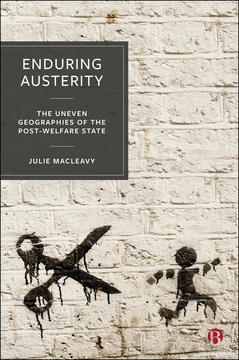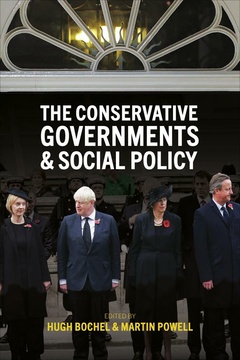Social Policy in a Cold Climate
Policies and their Consequences since the Crisis
Edited by Ruth Lupton, Tania Burchardt, John Hills, Kitty Stewart and Polly Vizard
ISBN
978-1447327721Dimensions
234 x 156 mmImprint
Policy PressISBN
978-1447327714Dimensions
234 x 156 mmImprint
Policy PressISBN
978-1447327752Imprint
Policy PressISBN
978-1447327769Imprint
Policy PressSocial Policy in a Cold Climate offers a data-rich, evidence-based analysis of the impact Labour and coalition government policies have had on inequality and on the delivery of services such as health, education, adult social care, housing and employment in the wake of the greatest recession of our time.
The authors provide an authoritative and unflinching analysis of recent approaches to social policy and their outcomes following the financial crisis, with particular focus on poverty and inequality. Through a detailed look at spending, outputs and outcomes the book offers a unique appraisal of Labour and the coalition’s impact as well as an insightful assessment of future directions.
This volume offers a much-awaited follow-up to the critically acclaimed ‘A more equal society?’ (2005) and ‘Towards a more equal society?’ (2009).
"With the policy agenda of the last government set to continue, [this] work deserves to be read and consulted widely." Carys Roberts, Progress Online
"Does the financial crisis and its aftermath represent a key turning point in the history of the UK welfare state? This is an essential resource for anyone interested in UK social policy." Jonathan Portes, National Institute of Economic and Social Research, UK
"This book offers a reference guide for readers who want facts, figures and a meticulous analysis of social policy in order to critique the claims that make headline news." Frontline Magazine
"Analysis of the high quality we have come to expect from these authors - a vital contribution to current debates about the fundamental policy principles and goals of the welfare state." Fran Bennett, University of Oxford
"An essential addition to the bookshelves of anyone who studies or is involved in UK social policy" - Journal of Social Policy
"The authors provide sophisticated levels of analysis and [present] intricate data." LSE Review of Books
"Hats off to CASE for another in their invaluable series on whether social policy is meeting its goal of a fairer society. This authoritative account of social policy and wellbeing from 2007 to 2015 is chilling but essential reading." Jane Waldfogel, Columbia University, USA
"Another superb assessment of UK social policies, this time in the face of austerity, from the anti-cyclical policies of Labour through to the end of the austerity coalition. So authoritative, resourceful and speedy!" Jonathan Bradshaw, University of York, UK
"A one-stop shop for an authoritative and measured assessment of the response to the crisis by the Labour government and of the unfortunate policies of the 2010-15 Coalition – which is what you’d expect from this team." Peter Taylor-Gooby, University of Kent
Ruth Lupton is a Professor of Education at the University of Manchester, and was previously Principal Research Fellow and Deputy Director at the Centre for Analysis of Social Exclusion at LSE.
John Hills (1954-2020) was Richard Titmuss Professor of Social Policy, Director of the Centre for Analysis of Social Exclusion and Co-director of the International Inequalities Institute, LSE.
Kitty Stewart is an Associate Professor at LSE and research associate at CASE. Her interests include: child poverty and disadvantage, international comparison of policy, outcomes relating to poverty and inequality and employment trajectories for the low-skilled.
Tania Burchardt is an Associate Professor at LSE and Deputy Director of the Centre for Analysis of Social Exclusion (CASE) LSE. Her interests include theories of social justice, including the capability approach, employment, welfare and exclusion and equality and inequality in Britain.
Polly Vizard is an Associate Professorial Research Fellow at the CASE, LSE. Her interests include equality, capability and human rights and the development of tools to measure ‘autonomy'.
Introduction ~ Ruth Lupton, Kitty Stewart, Tania Burchardt, John Hills and Polly Vizard;
Part One:
Benefits, pensions, tax credits and direct taxes ~ John Hills, Paola De Agostini and Holly Sutherland;
Young children ~ Kitty Stewart and Polina Obolenskaya;
Schools ~ Ruth Lupton, Stephanie Thomson and Polina Obolenskaya;
Further and higher education and skills ~ Ruth Lupton, Lorna Unwin and Stephanie Thomson;
Employment policy since the crisis ~ Abigail McKnight;
Housing ~ Becky Tunstall;
Health ~ Polly Vizard, Polina Obolenskaya and Emily Jones;
Adult social care ~ Tania Burchardt, Polina Obolenskaya and Polly Vizard;
Part Two:
Public and private welfare ~ Tania Burchardt and Polina Obolenskaya;
Socioeconomic inequalities ~ John Hills and Kitty Stewart;
The changing structure of UK inequality since the crisis ~ John Hills, Jack Cunliffe and Polina Obolenskaya;
Spatial inequalities ~ Ruth Lupton, Polina Obolenskaya and Amanda Fitzgerald;
Part Three:
Summary and conclusion ~ John Hills, Ruth Lupton, Tania Burchardt, Kitty Stewart and Polly Vizard.







